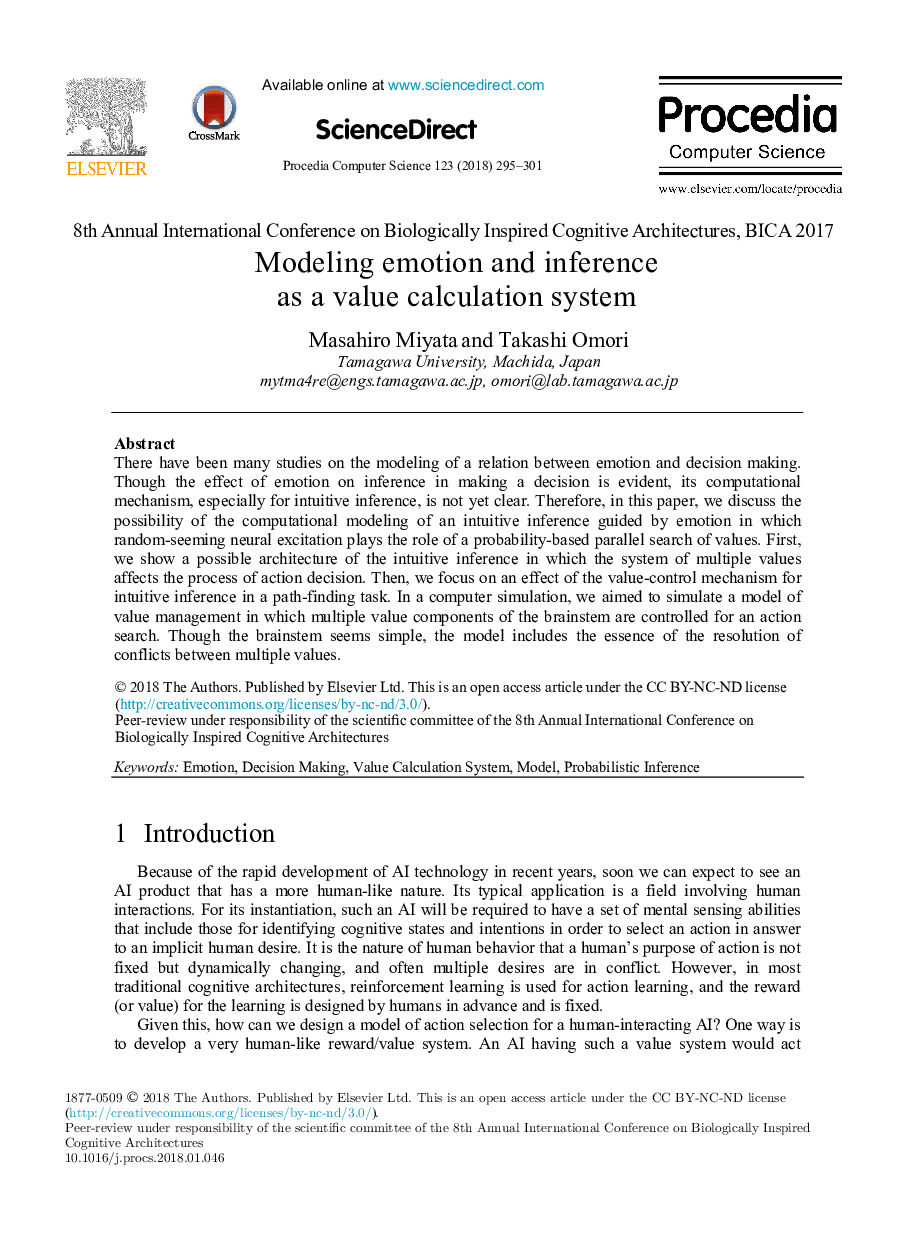| Article ID | Journal | Published Year | Pages | File Type |
|---|---|---|---|---|
| 6900887 | Procedia Computer Science | 2018 | 7 Pages |
Abstract
There have been many studies on the modeling of a relation between emotion and decision making. Though the effect of emotion on inference in making a decision is evident, its computational mechanism, especially for intuitive inference, is not yet clear. Therefore, in this paper, we discuss the possibility of the computational modeling of an intuitive inference guided by emotion in which random-seeming neural excitation plays the role of a probability-based parallel search of values. First, we show a possible architecture of the intuitive inference in which the system of multiple values affects the process of action decision. Then, we focus on an effect of the value-control mechanism for intuitive inference in a path-finding task. In a computer simulation, we aimed to simulate a model of value management in which multiple value components of the brainstem are controlled for an action search. Though the brainstem seems simple, the model includes the essence of the resolution of conflicts between multiple values.
Related Topics
Physical Sciences and Engineering
Computer Science
Computer Science (General)
Authors
Masahiro Miyata, Takashi Omori,
